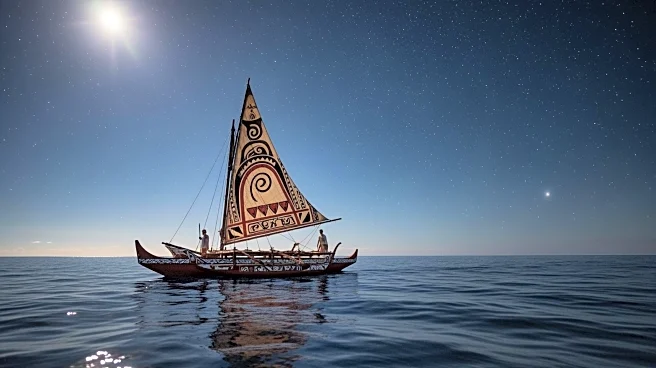What's Happening?
Adam Johnson's novel 'The Wayfinder' is set in ancient Polynesia, blending mythology with historical elements. The story follows Kōrero, a young girl from the island of Manumotu, as she navigates challenges
posed by environmental degradation and societal collapse. The novel intertwines two timelines, exploring themes of survival, cultural heritage, and political intrigue. Johnson, a Pulitzer Prize-winning author, crafts a narrative that is both epic and intimate, drawing on South Pacific myths and contemporary issues.
Why It's Important?
'The Wayfinder' offers a unique perspective on the intersection of mythology and modernity, highlighting the relevance of ancient stories in today's world. The novel's exploration of environmental and societal themes resonates with current global challenges, such as climate change and cultural preservation. Johnson's work contributes to the literary discourse on how historical narratives can inform contemporary understanding and action, particularly in the context of indigenous cultures and their wisdom.
Beyond the Headlines
The novel's intricate storytelling and character development provide insights into the complexities of human nature and societal dynamics. Johnson's portrayal of Polynesian culture and mythology serves as a reminder of the rich diversity of narratives that exist beyond Western literary traditions. 'The Wayfinder' challenges readers to consider the ethical implications of cultural and environmental stewardship, encouraging reflection on the interconnectedness of past and present.











